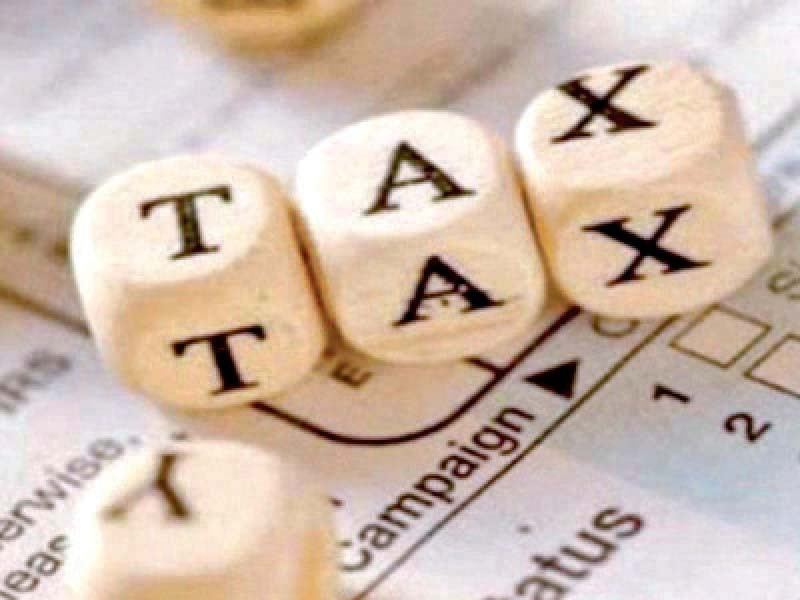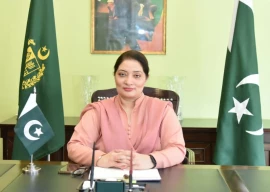
The centre and four provinces, on Monday, reached a consensus on the implementation of the second phase of harmonisation of sales tax on services, removing a major obstacle in the way of the approval of a $900 million loan from two international creditors.
Speaking to the Express Tribune, Finance Minister Ishaq Dar said, “The National Tax Council (NTC) has successfully built consensus on the harmonisation of the General Sales Tax,” adding that, “The consensus will pave the way for the approval of a second Resilient Institutions for Sustainable Economy (RISE-II) budget support loan worth $450 million from the World Bank.”
The finance minister chaired the NTC meeting at the Finance Division on Monday.
Based on the World Bank’s approval, the Asian Infrastructure Investment Bank (AIIB) has also promised giving Pakistan a loan of $450 million, bringing the total approvals to $900 million that Islamabad urgently needs to meet its external financing requirements.
Pakistan hopes to secure the WB’s approval by January. Due to the nature of the loan, the money will be immediately disbursed by the Washington-based lender after approval from the WB board.
The main stumbling block in the way of the RISE-II loan has been the lack of consensus between Islamabad and the four provincial governments over the harmonisation of GST on goods and services across the country.
To achieve the consensus, the Federal Board of Revenue (FBR) withdrew its objections to a settlement between the four provinces over the distribution of revenues being collected on franchises, banking insurance, transport of goods, services and advertisement.
According to a participant of the meeting, the NTC has rectified an understanding reached among the four provinces. The provinces will now determine their revenue shares based on a formula that is grounded on both the origin and the destination of the service, according to the officials.
The NTC also rectified phase-I of the GST harmonisation in which the tax on the restaurant services will be the right of the province while the federal government’s right on toll service has been established.
According to a statement issued by the Ministry of Finance, “The FBR chairman and provincial stakeholders extended their consensus to proceed ahead in the spirit of greater national interest for harmonisation of GST under the umbrella of NTC.”
Finance Minister Ishaq Dar appreciated the stakeholders for building consensus and settlement of the decision regarding the harmonisation of GST for the ease of doing business, stated the ministry.
Finance Minister Punjab Muhammad Mohsin Leghari, Minister of State for Finance and Revenue Dr Aisha Ghous Pasha, SAPM on Finance Tariq Bajwa, SAPM on Revenue Tariq Mehmood Pasha also attended the meeting.
The meeting reviewed the progress on the decisions of NTC’s previous meetings on the harmonisation of GST across the country. The finance minister explained that in order to ease doing business, the harmonisation of GST is important. Harmonisation of GST will also be a major step towards the completion of policy actions under the World Bank’s RISE programme.
The issue of de-coupling the RISE-II loan from the second Programme for Affordable Energy (PACE-II) loan worth $600 million, however, remains unresolved.
According to the sources, the World Bank’s Country Head Najey Benhussian, on Monday, told the Minister for Economic Affairs Sardar Ayaz Sadiq that the World Bank was willing to separate the approval of both loans provided that Pakistan shows seriousness in the implementation of some of the policy actions.
At present, the Washington-based lender has clubbed the approval of the $450 RISE-II loan and the $600 million PACE-II. At this stage, however, Pakistan hopes to get approval for the $450 million RISE-II policy loan.
While the conditions for the RISE-II loan pertain to the country’s fiscal and macroeconomic framework, involving the provinces too, the World Bank believes that Pakistan cannot achieve macroeconomic stability until its power sector is fixed.
Pakistan is required to increase its annual base tariff, and implement the increase in electricity prices on account of pending fuel cost adjustments and the two quarterly tariff adjustments for the July-September and October-December quarters of 2022. The power distribution companies have already submitted an application for a Rs2.10 per unit increase in electricity prices for the first quarter.
These conditions are made even more difficult given the high political instability in the country brought on by protests from former Prime Minister Imran Khan’s party, Pakistan Tehreek-i-Insaaf (PTI).
Published in The Express Tribune, November 8th, 2022.
Like Business on Facebook, follow @TribuneBiz on Twitter to stay informed and join in the conversation.


1729161093-0/liam-(4)1729161093-0-165x106.webp)


1732603002-0/lamar-(4)1732603002-0-165x106.webp)












COMMENTS
Comments are moderated and generally will be posted if they are on-topic and not abusive.
For more information, please see our Comments FAQ